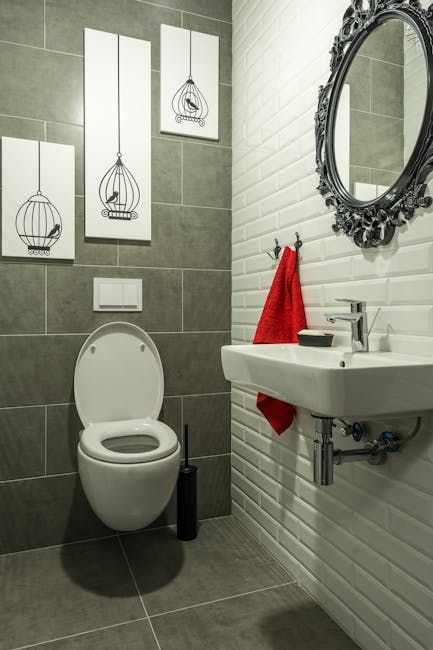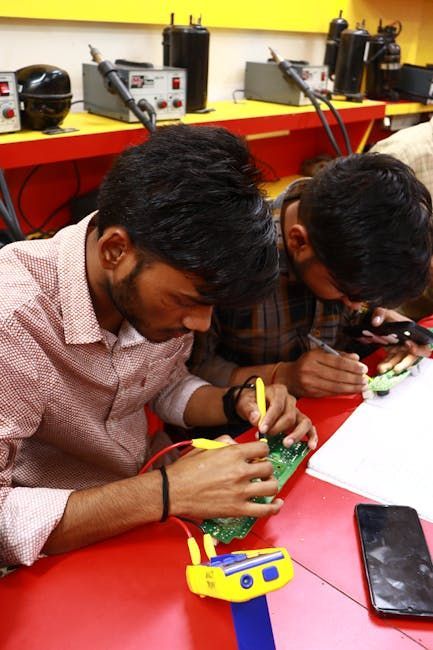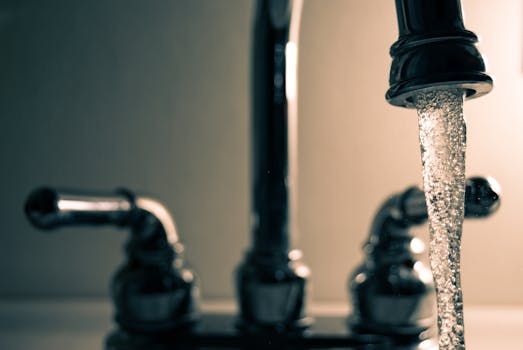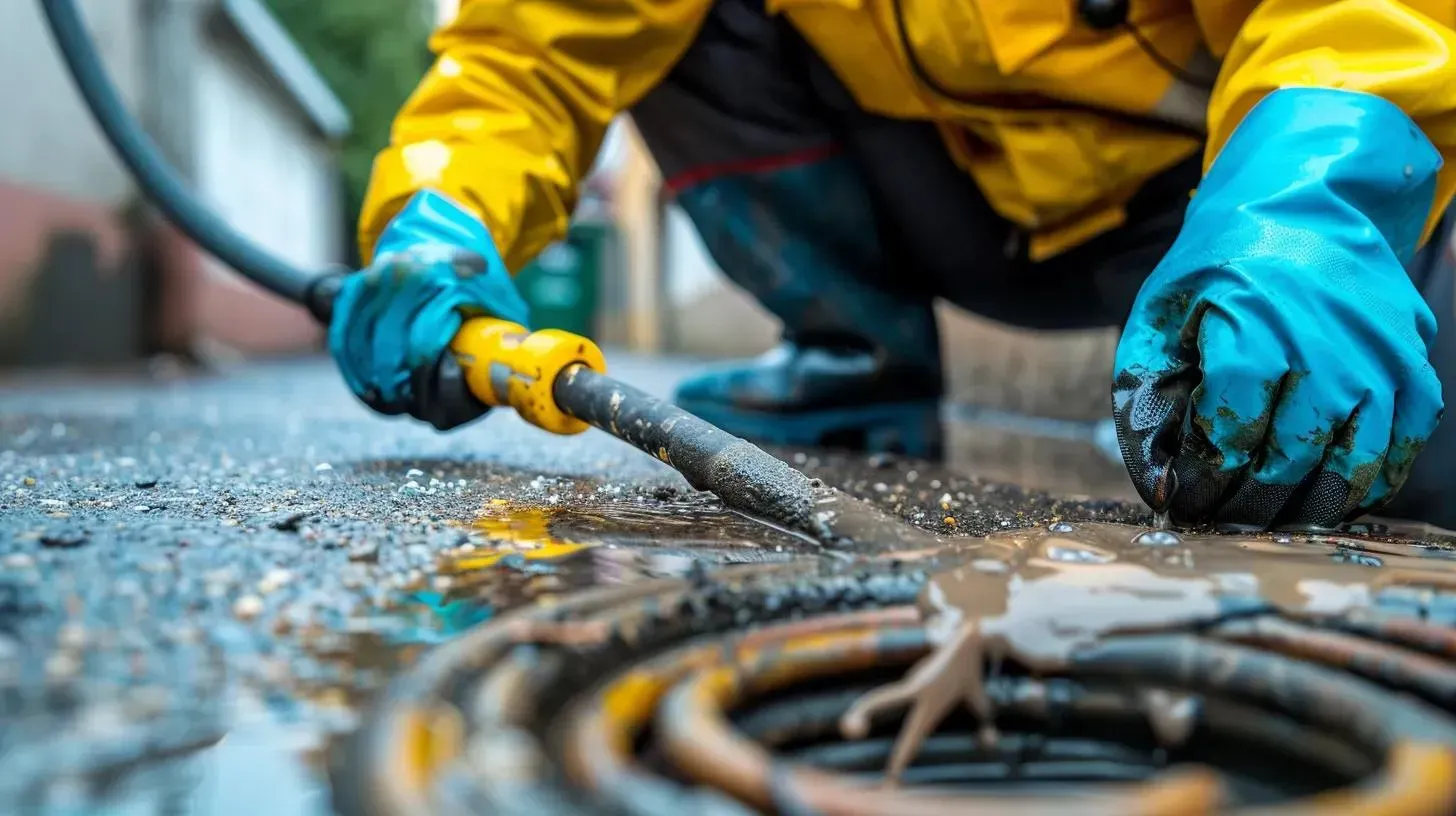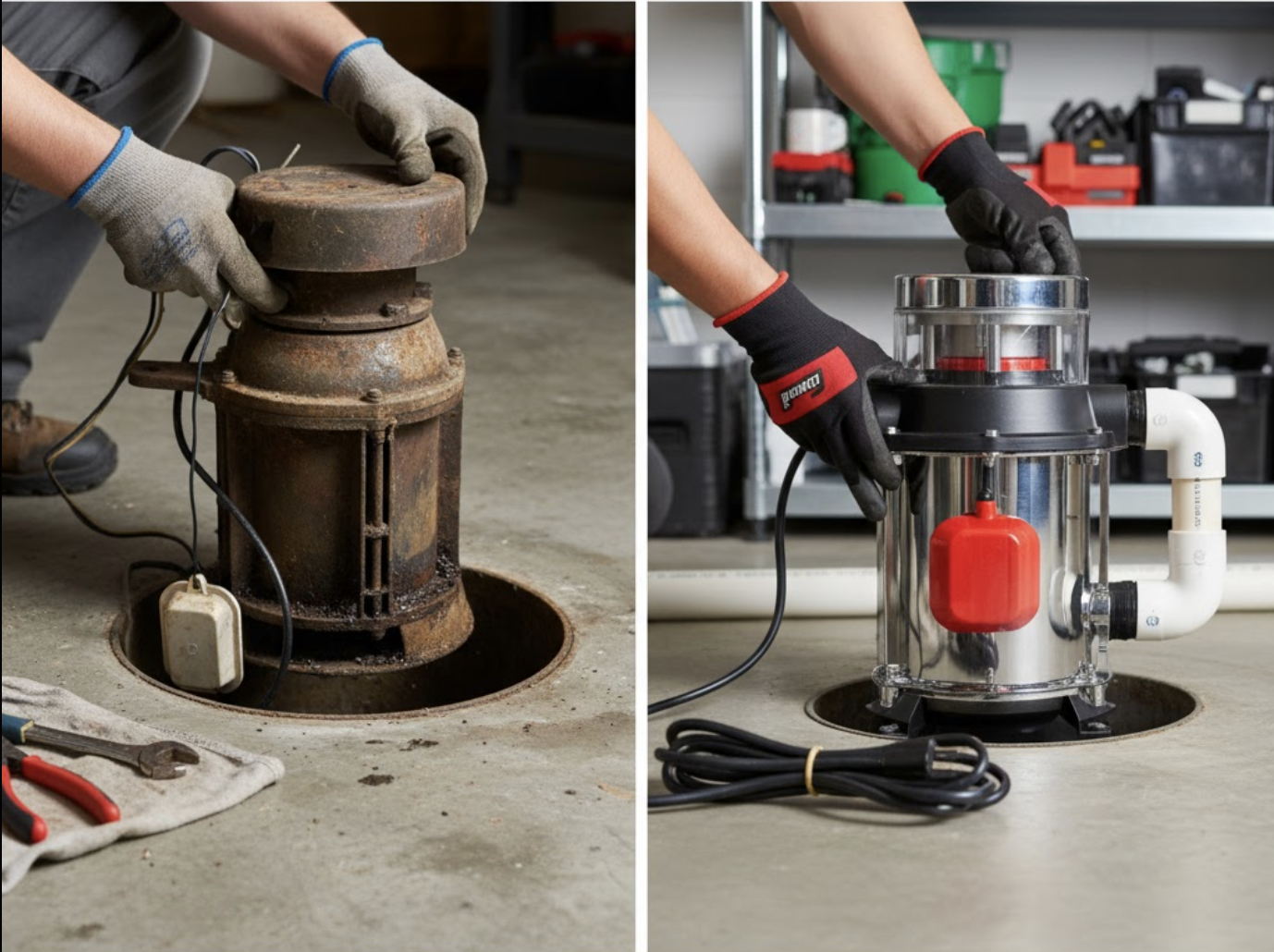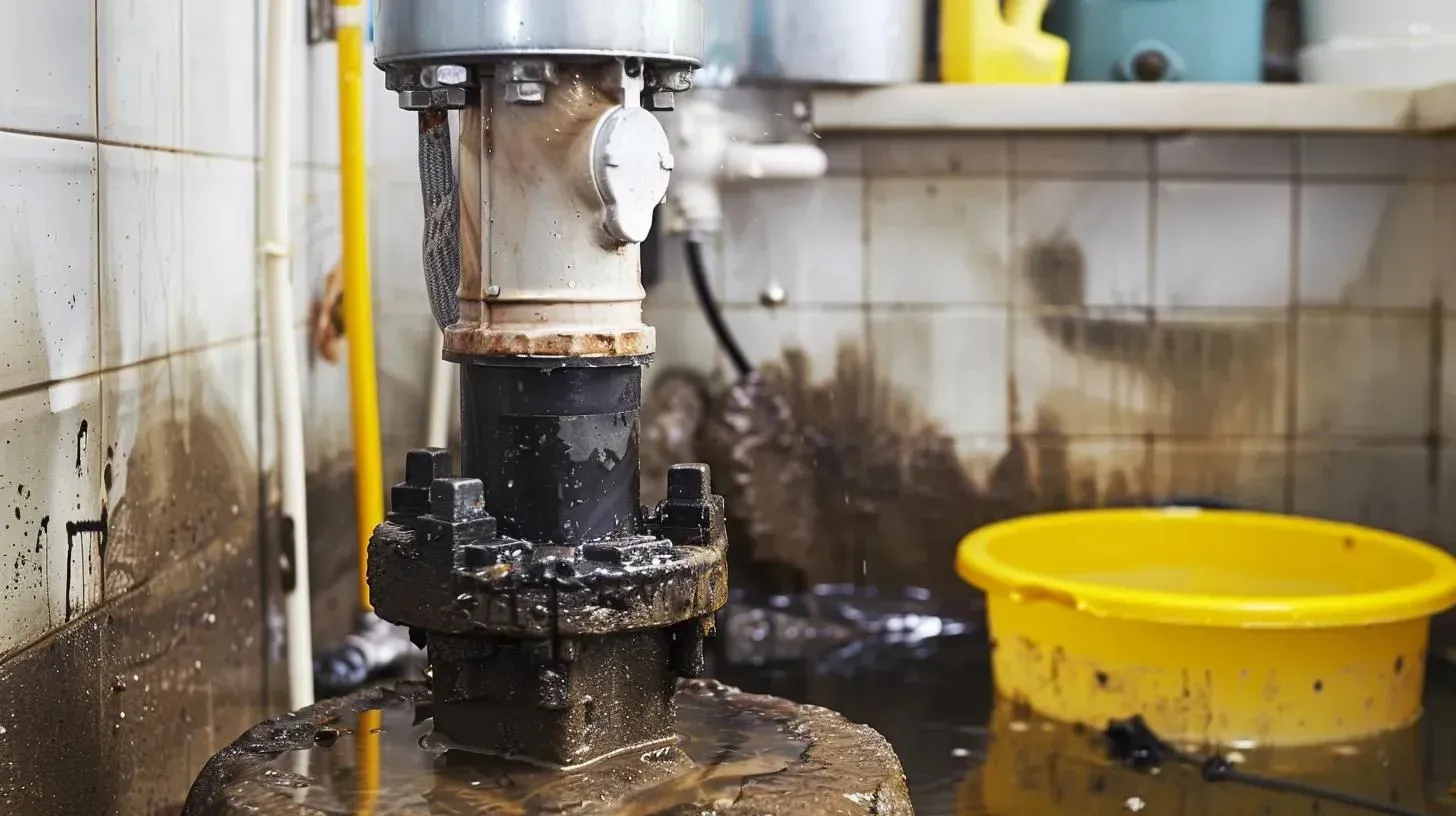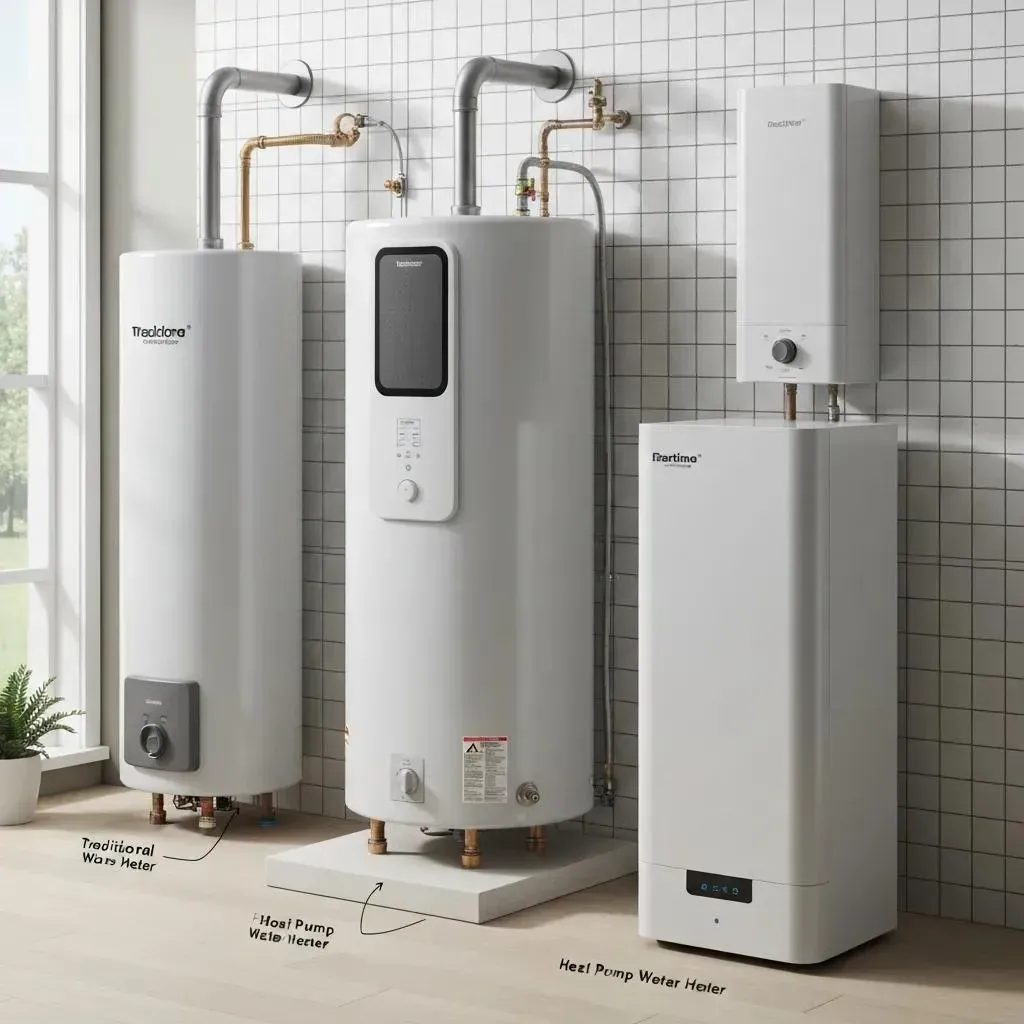Water Heater Repair vs. Replacement: Your Denver Guide to Costs, Signs, and Solutions
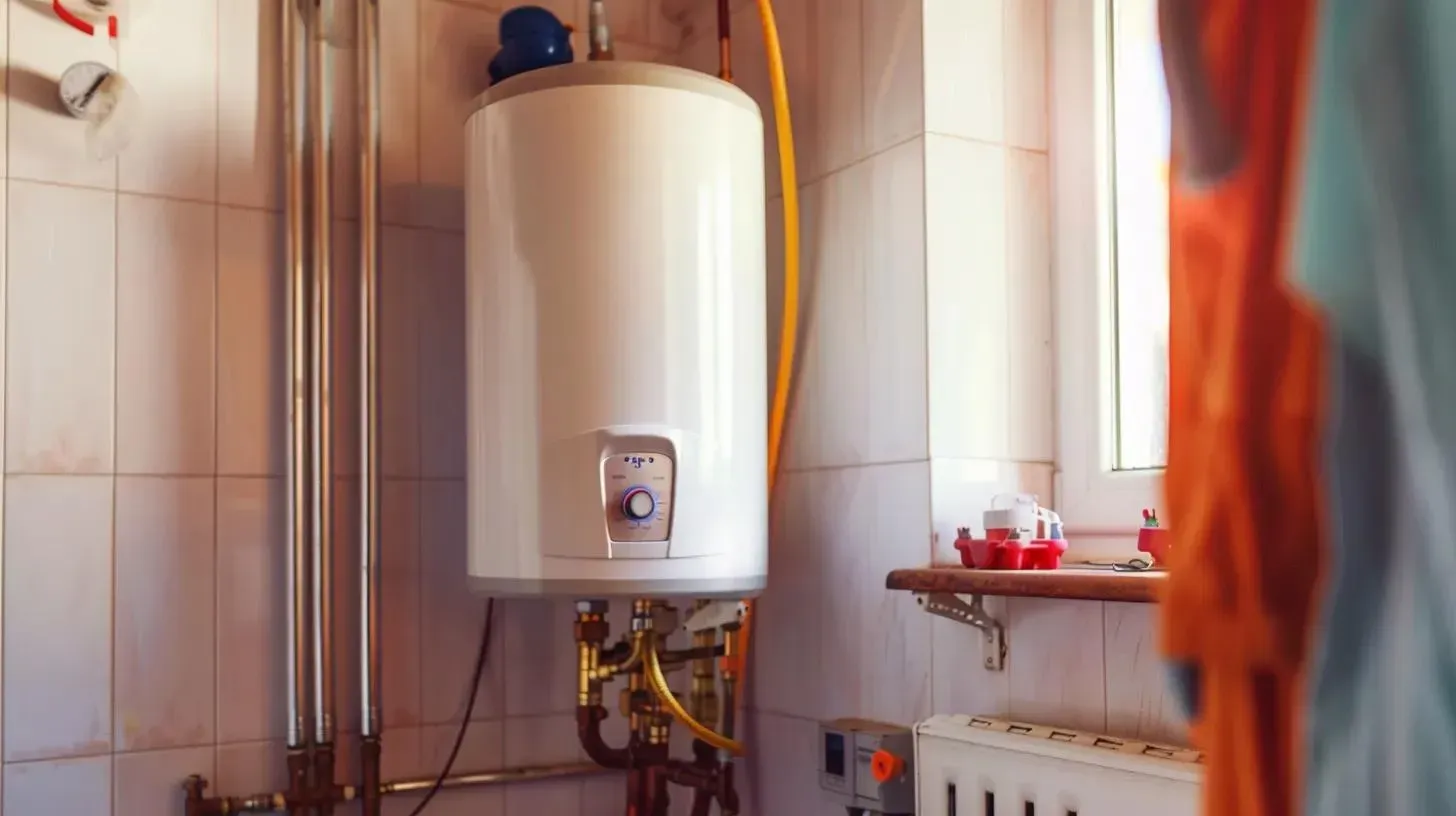
A sudden water heater breakdown can leave your home without hot water and lead to emergency repair costs up to 50% higher if you wait. This guide will show you how to spot the key signs that tell you whether a water heater repair or a full replacement is the right move, and how our straightforward, dependable service keeps your system running smoothly. We’ll cover:
- The tell-tale signs that point to repairable issues versus when it’s time for a replacement
- Local Denver cost breakdowns for both repairs and complete replacements
- What to consider when deciding between repair and replacement benefits
- Our emergency response options and tips for preventive maintenance
- Why Accountable Home Plumbing is your best choice for honest pricing and expert work
When you search for “water heater repair near me,” count on
Accountable Home Plumbing for upfront estimates, 24/7 availability, and skilled technicians who will restore your comfort with minimal disruption.
What Are the Key Signs You Need Water Heater Repair or Replacement?
Warning signs like leaks, inconsistent hot water, or strange noises point to underlying problems with your water heater’s components and performance. Catching these issues early can prevent water damage and high energy bills, as even small problems like sediment buildup can lead to serious tank corrosion. Noticing these signs promptly will help you decide if a repair is the best solution or if it’s time for a replacement.
Signs Your Water Heater Might Be Failing
Several indicators suggest your water heater is on its way out: no hot water, fluctuating water temperatures, discolored or rusty water, unusual noises, and leaks. These problems can stem from sediment buildup, corrosion, or failing parts.
This information offers a great overview of common water heater issues, helping you p out if a repair or replacement is in order.
What Common Problems Indicate Water Heater Repair Is Needed?
Issues like leaking valves, fluctuating temperatures, and pilot light problems often mean your water heater can be repaired to get it working like new again, without needing a full replacement.
- Water pooling around fittings, often due to worn pressure-relief valves or loose connections
- Lukewarm or inconsistent hot water, possibly from failing heating elements or thermostats
- Discolored water, which can be a sign of minor rust around the anode rod
- Rattling or popping sounds, usually caused by sediment buildup on the heating elements
- Pilot light going out, potentially due to a clogged pilot tube or faulty thermocouple
Fixing these specific issues can extend your water heater’s life and keep it running efficiently, delaying the need for a replacement.
How Do You Recognize When It’s Time to Replace Your Water Heater?
If leaks are coming directly from the tank itself, your water is consistently rusty, or you’re running out of hot water even after repairs, it’s likely time for a replacement. These symptoms often indicate irreversible corrosion or internal damage that can’t be fixed with simple repairs. Cracks in the tank or widespread rust mean the unit is no longer safe or reliable for providing clean, hot water.
What Are the Age and Lifespan Factors for Water Heater Replacement?
Different types of water heaters have expected lifespans. Once they reach the end of their service life, they tend to become less efficient and more prone to leaks. Knowing these benchmarks can help you plan for an upgrade before an emergency strikes.
- Traditional tank water heaters: typically last 8–12 years
- Tankless units: can last up to 20 years with proper care
- Heat pump water heaters: usually perform well for 10–12 years before needing major component work
- The original installation date and how well it’s been maintained are key indicators of its remaining life
Water Heater Lifespan and Replacement Considerations
On average, a traditional water heater lasts between 8 and 12 years, while tankless models can go up to 20 years if maintained well. Factors like water quality, regular maintenance, and how often you use it all play a role in its lifespan.
This insight is vital for homeowners to understand how long their water heater should last and to prepare for potential replacements.
Planning a replacement based on these lifespan estimates can help you avoid unexpected breakdowns and ensure you get a new, efficient model.
How Much Does Water Heater Repair vs Replacement Cost in Denver?
In the Denver Metro Area, the costs for water heater repair and replacement can vary depending on the specific parts needed, labor rates, any required permits, and the type of unit. Getting accurate estimates helps homeowners and property managers make smart decisions that balance initial costs with long-term value.
Water Heater Repair vs. Replacement Costs in Denver
Replacing a water heater in Denver typically costs between $1,200 and $4,000, depending on the model. Minor repairs, on the other hand, can range from $100 to $350. This source provides specific cost details for water heater repairs and replacements in the Denver area, which is essential for making informed financial decisions.
What Are the Typical Repair Costs for Water Heaters in Denver?
Professional repair services usually fall within predictable price ranges, depending on the part that needs fixing and how complex the labor is.
| Service | Average Price Range | Typical Details |
|---|---|---|
| Heating element replacement | $200 – $350 | Includes parts, labor, and system testing |
| Thermostat or sensor calibration | $150 – $250 | Component swap and temperature fine-tuning |
| Pressure relief valve servicing | $100 – $200 | Valve replacement and leak correction |
| Anode rod replacement | $120 – $180 | Corrosion protection to extend tank life |
| Minor leak sealing and tightening | $100 – $150 | Gasket replacement or pipe connector adjustments |
Repairing key components typically costs between $100 and $350, restoring safe operation and potentially adding several years to your water heater’s life.
What Is the Average Cost of Water Heater Replacement in Denver?
A full water heater replacement includes the cost of the new unit, installation labor, permit fees, and the removal of the old system.
| Heater Type | Replacement Range | Includes |
|---|---|---|
| 50-gallon tank | $1,200 – $2,000 | Standard unit, installation, basic permits |
| 40-gallon tankless | $1,800 – $3,500 | High-efficiency unit, new venting, permits |
| Heat pump | $2,500 – $4,000 | Energy Star model, potential electrical upgrade, permits |
Replacing a standard tank typically costs between $1,200 and $2,000. More advanced options like tankless or heat pump systems can cost up to $4,000 but offer significant long-term energy savings.
How Do Long-Term Energy Savings Affect Repair vs Replacement Decisions?
Upgrading to an energy-efficient model can cut your annual water heating expenses by as much as 30%, helping to offset the higher initial cost over time.
- Energy Star certified tanks: potential savings of up to $300 per year
- Tankless systems: provide hot water on demand, reducing standby energy loss
- Heat pump units: can be up to 60% more efficient than standard electric resistance heaters
Energy Efficiency and Water Heater Choices
Switching to an energy-efficient model can lower your annual water heating bills. Tankless systems and heat pump units offer substantial energy savings compared to traditional tank water heaters.
This highlights the advantages of energy-efficient models, which can help homeowners save money on their utility bills.
Calculating the potential savings on your utility bills can help you determine if a replacement offers better long-term value than continuing with repairs.
When Should You Choose Water Heater Repair Over Replacement?
Repair is usually the best option when the main structure of your water heater is still sound and only specific components have failed. Opting for a repair can restore full functionality at a much lower cost than replacement, extending the system’s life without unnecessary upgrades.
What Repair Scenarios Are Most Cost-Effective?
Fixing minor component issues and performing routine maintenance tasks often cost less than half of what a full replacement would cost.
- Anode rod corrosion: Replacing this sacrificial rod can protect the tank from further rust.
- Heating element burnout: Swapping out a faulty heating element can restore hot water production.
- Thermostat miscalibration: Adjusting or replacing the thermostat can fix temperature inconsistencies.
- Pressure relief valve drips: Replacing a leaking valve is a common and relatively inexpensive fix.
- Sediment-induced noises: Flushing the tank can eliminate popping or rumbling sounds.
Targeted repairs for these issues typically range from $100 to $350 and can add 3–5 years of service life to your water heater.
How Does Repair Extend Your Water Heater’s Lifespan?
By replacing worn-out parts and clearing out sediment, professional repairs help restore your water heater’s original efficiency and prevent further corrosive damage. This proactive approach can add up to five years to a tank’s usable life, reducing the need for major expenses and ensuring consistent performance.
When Is Repair Not Advisable Due to Safety or Reliability Concerns?
Repairing a water heater becomes impractical when the tank shows significant rust, persistent leaks, or issues with the pressure relief valve—these are signs that the tank’s structure is failing. In such situations, ongoing repairs might mask dangerous problems and could lead to a sudden tank rupture or significant water damage.
When Is Water Heater Replacement the Best Option?
Replacement is the smarter choice when your water heater is old, inefficient, or has internal damage that makes repairs impractical. Upgrading ensures consistent performance, better energy efficiency, and comes with a factory warranty on a new system.
What Are the Signs of Irreparable Water Heater Damage?
Irreversible damage includes leaks from the main tank, severe rust perforations, or corrosion in the heating element compartment that compromises the tank’s integrity. If the cost of repairs approaches 50% or more of the price of a new unit, investing in a new water heater is usually more reliable and cost-effective.
How Do Energy-Efficient Models Benefit Denver Homeowners?
Modern water heaters with advanced insulation, digital thermostats, and condensing technology can reduce energy consumption by 20–60%. These improvements lead to lower monthly utility bills and may qualify you for local rebates, maximizing your return on investment.
What Are the Differences Between Tank, Tankless, and Heat Pump Water Heaters?
Here’s a quick comparison to help you choose the right replacement.
| System Type | Key Advantage | Typical Use Case |
|---|---|---|
| Tank | Lower initial cost | Standard homes that have space for a storage tank |
| Tankless | Endless hot water on demand | Homes looking for a compact design and a continuous supply |
| Heat Pump | Highest energy efficiency | Properties with suitable installation areas that are shaded and ventilated |
Understanding these differences will help you select the best system for your hot water needs, budget, and energy goals.
How Can Emergency Water Heater Repair Services Help in Urgent Situations?
Emergency repair services offer immediate assessment and fixes to prevent water damage and restore your hot water supply without delay. Quick response and expert diagnostics minimize downtime and reduce the risks associated with leaks or complete system failures.
When Should You Call a Plumber for Emergency Water Heater Repair?
Contact us for emergency service if you notice sudden flooding from the tank, if the pressure relief valve isn’t functioning correctly, or if you have no hot water during peak usage times. Immediate action can prevent structural damage and costly water cleanup.
What 24/7 Services Does Accountable Home Plumbing Offer in Denver?
Accountable Home Plumbing provides round-the-clock emergency service for water heater leaks, no-hot-water situations, and critical safety failures. Our certified technicians arrive fully equipped to diagnose, repair, or recommend replacement with clear, upfront pricing.
How to Prevent Water Heater Emergencies with Regular Maintenance?
Annual inspections and tank flushing help remove sediment, while anode rod replacements and valve checks prevent leaks before they become major problems. Scheduled maintenance ensures connections are tight, thermostats are accurate, and your system operates safely all year long.
How Do You Maintain Your Water Heater to Extend Its Lifespan?
Regular maintenance keeps your water heater running efficiently, maximizes its performance, and helps catch early signs of wear. Proactive care can extend a tank’s life by 20–30%, delaying costly repairs and ensuring you always have reliable hot water.
What Are the Steps to Flush and Clean a Water Heater?
Flushing removes sediment that reduces heating efficiency and causes corrosion:
- Turn off the power and water supply to the heater.
- Connect a hose to the drain valve and run it to an outdoor location or drain.
- Open the temperature and pressure relief valve to let air in, then fully open the drain valve.
- Flush the tank until the water runs clear, then close the valves and refill the tank.
- Restore power and check for any leaks.
Flushing your water heater every 12 months helps maintain heating efficiency and prevents noisy operation.
When Should You Replace the Anode Rod or Other Components?
Inspect the anode rod every two years; replace it if it’s less than ½-inch thick or heavily corroded. Similarly, replace pressure relief valves or thermostats when you notice signs of malfunction to prevent tank damage and performance issues.
How Does Preventing Sediment Buildup Improve Water Heater Performance?
Removing mineral deposits ensures that heat is transferred efficiently from the elements to the water, which reduces energy consumption and lessens thermal stress on components. Regular flushing prevents premature failure of heating elements and extends the overall life of your system.
What Makes Accountable Home Plumbing the Trusted Choice for Water Heater Repair and Replacement in Denver?
Accountable Home Plumbing combines local expertise, transparent pricing, and fast emergency response to provide dependable water heater services throughout the Denver Metro Area. Our commitment to honesty, continuous training, and customer satisfaction builds lasting trust with homeowners and property managers.
How Does Transparent Upfront Pricing Benefit Customers?
Providing detailed estimates before any work begins means no surprise charges on your bill. This allows you to compare options confidently and budget effectively for necessary repairs or replacements.
Why Is 24/7 Availability Important for Water Heater Services?
Water heater problems can happen at any time, potentially causing property damage and disrupting your household. Our round-the-clock service ensures that urgent repairs restore your hot water quickly and prevent small leaks from turning into major disasters.
What Expertise and Warranty Support Does Accountable Home Plumbing Provide?
Our certified technicians receive ongoing training on the latest water heater technologies, from tankless systems to high-efficiency heat pumps. Every repair and installation is backed by our workmanship guarantee and manufacturer warranties, giving you complete peace of mind.
Frequently Asked Questions About Water Heater Repair vs Replacement
These answers address common questions about costs, timing, and component issues, helping you plan repairs or upgrades with confidence.
How Much Does It Cost to Replace a Water Heater in Denver?
Replacement costs typically range from $1,200 to $4,000, depending on the unit type, size, and installation complexity. This estimate usually includes permit fees and the disposal of the old unit.
What Are the Signs My Water Heater Needs Replacement?
Key indicators include leaks from the tank itself, rusty water, rumbling noises from sediment buildup, an age of 10–12 years or more, and recurring component failures that make repairs less cost-effective than replacement.
Is It Cheaper to Repair or Replace a Water Heater?
Minor repairs costing under $350 often make sense. However, if you’re facing repeated breakdowns or if repair costs exceed 50% of a new water heater’s price, installing a new unit is usually the more economical choice.
Can a Water Heater Last 20 Years?
Tankless water heaters, with consistent maintenance, can last over 20 years. Traditional tank water heaters, however, typically have a lifespan of 8–12 years before efficiency and safety concerns increase.
What Are the Signs of a Faulty Heating Element?
A lack of hot water, inconsistent water temperatures, or tripped circuit breakers can indicate a failing heating element. Replacing it often costs between $200–$350 and can restore proper function.
Having a clear understanding of when to repair versus replace ensures your home has reliable hot water while keeping costs in check. Schedule an expert assessment with Accountable Home Plumbing to get transparent estimates, professional repairs, or efficient system upgrades tailored to your Denver home’s specific needs.

